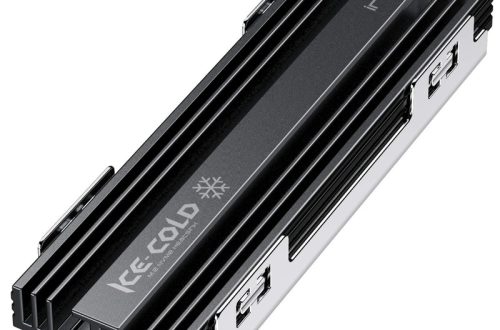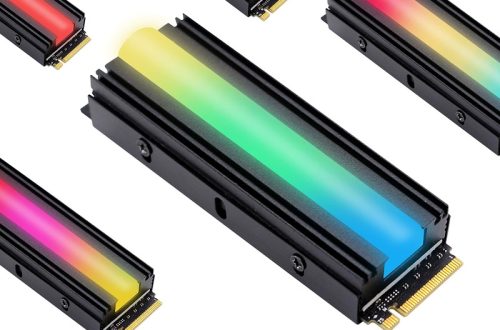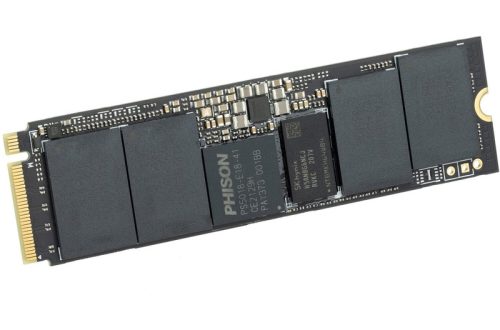Part 1: The Role of the CPU in Computer Systems
The central processing unit (CPU) is often referred to as the “brain” of the computer, and for good reason. It is responsible for executing the instructions of a computer program by performing the basic arithmetic, logical, control, and input/output operations specified by the instructions. In simpler terms, it is the component that carries out the actual computing and processing of data within the computer system.
1. Execution of Instructions:
The central processing unit (CPU) is the powerhouse of a computer, responsible for executing instructions fetched from the memory. It decodes and executes these instructions, performing the necessary calculations and operations to process data. This repetitive process ensures the seamless functioning of the entire system. By continuously carrying out these fundamental tasks, the CPU enables the overall operation of the computer. Its role extends beyond merely processing data; it also manages the flow of information between various components, contributing to the efficient coordination and functioning of the entire system. The CPU’s ability to execute instructions and control system components is vital in driving the smooth operation of computing technology and in ensuring the proper execution of programs and operations within the computer system.

2. Control of System Components:
Aside from executing instructions, the CPU undertakes a critical part in regulating the various components of the computer system. It oversees and directs the flow of data among the CPU, memory, and input/output devices, guaranteeing that the accurate information is being processed and the appropriate actions are being initiated as a result. This control function is indispensable for ensuring the overall coordination and smooth operation of the entire computer system. By managing the flow of data, the CPU facilitates the seamless interaction between hardware components, facilitating efficient and effective processing of information and contributing to the overall functioning of the computer system. This control aspect showcases the CPU’s crucial role in orchestrating the diverse elements within the computer system, enabling the smooth execution of tasks and the proper operation of the overall computing technology.
Part 2: Components and Structure of the CPU
The CPU is a complex component that consists of several essential parts, each of which plays a specific role in its overall function. Understanding these components and their structure is crucial for gaining insight into how the CPU operates within a computer system.
1. Arithmetic Logic Unit (ALU):
The Arithmetic Logic Unit (ALU) is an essential component of the CPU, serving as the primary unit responsible for executing arithmetic and logical operations. It is tasked with performing a wide array of functions including fundamental math operations such as addition, subtraction, multiplication, and division. Moreover, the ALU handles logical comparisons, shifting operations, and bitwise operations. Its versatile capabilities and efficiency in processing data make the ALU a pivotal component at the core of the CPU’s ability to execute instructions. The ALU’s proficiency in handling diverse operations in a swift and accurate manner is crucial in ensuring the efficient execution of programs and tasks, highlighting its significance in enabling the CPU to fulfill its role as the central processing unit within a computer system.
2. Control Unit:
The control unit is a vital constituent of the CPU, carrying the crucial responsibility of overseeing the execution of instructions. It begins by fetching instructions from the computer’s memory and subsequently decodes them into commands that the computer can assimilate, guiding the ALU and other CPU components to execute these instructions. This orchestration by the control unit ensures that the CPU operates in a synchronized and orderly manner. By providing guidance for the various operations of the CPU, the control unit plays a pivotal role in facilitating the smooth execution of programs and tasks. Its effective management of instructions and coordination of the CPU’s functions are fundamental in ensuring that the computer system processes data accurately and efficiently. Therefore, the control unit is integral in maintaining the seamless functioning and controlled operation of the CPU within a computer system.

Part 3: CPU Performance and Efficiency
The performance and efficiency of the CPU are critical factors in determining the overall speed and capability of a computer system. Several key aspects contribute to the performance and efficiency of the CPU, all of which are essential for understanding its function within a computer system.
1. Clock Speed:
The clock speed of a CPU denotes the number of cycles it can execute per second, typically measured in gigahertz (GHz). It serves as a critical indicator of the CPU’s processing power. A higher clock speed generally translates into faster processing and enhanced overall performance, as the CPU can execute a greater number of instructions within a given time frame. When assessing the capabilities of a CPU, the clock speed stands as a significant factor to consider, as it directly influences the speed and efficiency at which the CPU can process data. Therefore, in evaluating the performance potential of a CPU, the clock speed remains a fundamental metric in understanding its capacity to handle tasks swiftly and effectively. A higher clock speed not only signifies a more powerful CPU but also leads to improved responsiveness and better multitasking capabilities, contributing to overall enhanced computing performance.
2. Cache Memory:
Cache memory is a vital component within a CPU that significantly impacts its performance and efficiency. This high-speed memory serves as a storage space for frequently accessed data and instructions, allowing the CPU to rapidly retrieve them. By storing frequently used information close to the CPU, cache memory enables quick and efficient access, culminating in accelerated processing times and overall improved performance. This becomes particularly noteworthy when dealing with tasks that necessitate recurrent access to the same set of data, as the CPU can seamlessly retrieve the information from the cache memory, thereby expediting the processing of data and enhancing operational efficiency. Through its swift data retrieval capabilities, cache memory acts as a crucial resource that bolsters the CPU’s ability to swiftly access and utilize essential information, ultimately contributing to an uptick in the overall processing speed and efficiency of the CPU.

Part 4: The Future of CPU Technology
As technology continues to advance, so too does the development of CPU technology. Several trends and innovations are shaping the future of CPU technology, with significant implications for computer systems and their capabilities.
1. Multi-core Processing:
One of the most significant developments in CPU technology is the shift towards multi-core processing. This involves integrating multiple processing cores into a single CPU, allowing for parallel processing and improved multitasking capabilities. Multi-core CPUs have become increasingly common and are expected to continue to play a significant role in the future of CPU technology.
2. Advanced Manufacturing Processes:
The continued advancement of manufacturing processes is enabling the development of CPUs with smaller transistors and greater efficiency. This results in CPUs that consume less power, generate less heat, and offer improved performance compared to previous generations. Advanced manufacturing processes are key to driving the ongoing evolution of CPU technology.
In conclusion, the CPU is a fundamental component of computer systems, responsible for executing instructions, controlling system components, and enabling the processing of data. Understanding the function of the CPU, its components and structure, performance and efficiency, and the future of CPU technology is essential for gaining insight into its crucial role within computer systems. As technology continues to evolve, the continued development of CPU technology will have far-reaching implications for the capabilities and performance of computer systems in the years to come.




